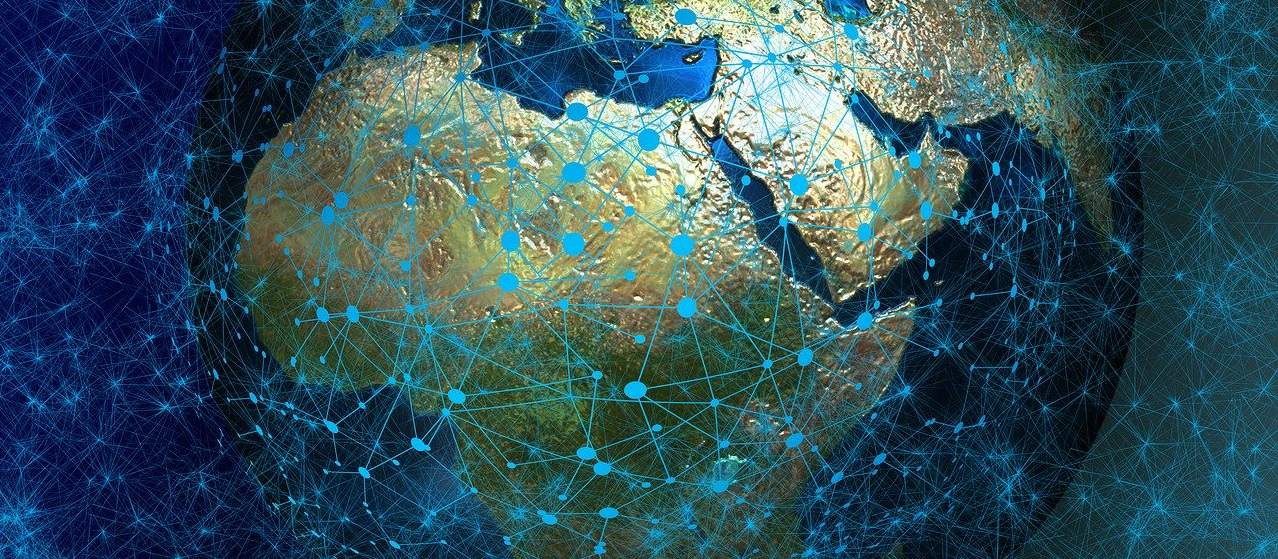
Precious Akanonu is a 2017 Young Global Changer and development economist from Nigeria. Ken Fullerton, a fellow 2017 Young Global Changer recently caught up with her to discuss a Nigerian perspective on the COVID-19 pandemic and more broadly how countries and the world can ‘recouple economic and social progress’ coming out of this crisis. In part one, Precious discusses the current situation in Nigeria, the implication on individuals and the economy more broadly, and how we, as individuals, organisations and governments can learn from this global pandemic.
The Crisis Has Led to an All-Time Crash in Oil Prices
KF: For many, COVID-19 has come as a big surprise and many countries and governments have had to rush to respond. What has the response been like in Nigeria and how has it affected the general population?
PA: Nigeria has applied several measures in response to the crisis including restricting movement and implementing lockdowns in three major states across the country, increasing testing and treatment capacities, as well as deploying governance and socio-economic measures to support businesses and households. However, the COVID-19 crisis has led to an all-time crash in oil prices – Nigeria’s single major source of revenue – and has slowed down economic activities have left the country with serious fiscal and monetary challenges. Not only has all components of aggregate demand (consumption, investment, government spending, and net export) fallen, it has also led to huge balance of payment deficits estimated at about $9billion. While the Central Bank of Nigeria has been able to secure $3.4 billion from the IMF, there is still a huge gap with severe implications for the strength of the Nigerian Naira and ultimately on trade and investment, economic growth, jobs, poverty reduction and for the livelihood of millions of people in the country.
I Worry for Nigeria as a Whole and the Ripple Effects of the Pandemic
KF: On a more personal level, how have you, your family and work colleagues been affected and what measures have you had to implement to continue being able to work and support your family and friends?
PA: For me and many of us, it’s been an unusual time filled with uncertainties, mixed emotions, and severe changes to daily routine and lifestyle. Sometimes I am worried about the possibility of a loved one getting infected with a virus that is yet to have any proven cure/vaccine. I also worry about having the need to visit a hospital at this time whether for COVID-19 or any other illness. Other times, I worry for Nigeria as a whole and the ripple effects of the pandemic. But I try to keep myself and loved ones well-informed about safety and self-care measures. I also endeavour to search out positive and inspiring news and engage in fun in-door activities with the family.
Aside from being an emotional roller-coaster, the pandemic has severely changed my lifestyle perhaps for the worse. Generally, I have not been the type to enjoy working from home. So, it was hard for me to adjust to the new work lifestyle at first, but I eventually picked up my motivation and adjusted to the times. With an even more sedentary work life; having to now work 24/7 from home.
Allow Countries To Quickly Learn From Each Other
KF: In some ways, global crises and pandemics – as sad as they may be – present opportunities that may not have previously been considered. What major lessons can both developing countries, like Nigeria, and developed countries take from this pandemic to strengthen their economies, their health systems and be better prepared in future?
PA: One of the major lessons this pandemic teaches us is the need for improved global, regional and intersectoral coordination – particularly in terms of surveillance, technology and data, equipping the health care sector, and better crisis management structures.
The global response to the crisis was severely hampered by a narrow country focus, regulatory barriers, and a mismatch of demand and supply. In such an interconnected world that makes the global spread of a virus much easier, there was no effective rapid response command structures to allow countries to quickly learn from each other about what’s working and what could work, so they can roll out their health and economic response in a calibrated way as the virus spreads. For example, we needed rapid-result testing to allow for rapid isolation of those infected with Covid-19, but the contract-tracing technologies that was available in East Asia and effectively used there, were not rapidly learned, mass produced and deployed in other countries.
Global Coordination Is Essential
Global coordination is essential especially to support developing countries to know where their much limited fiscal funds would yield the best returns in resolving a crisis; to improve production and supply chains of critical products especially to highly trade-dependent and low-income countries; and to prevent severe food insecurity and hunger especially for net food-importing countries.
Finally, more than ever before, the impact of the pandemic buttresses the need for a cross-sectoral and cross-thematic coordination in policy planning at national, regional and global levels. Particularly, we have seen the need for higher productive capacity especially for many African countries. However, we must coordinate how we go about improving production capacities at all levels, while bearing in mind key sectoral and thematic issues (e.g. public health, food security, migration, supply chains, climate change, job creation, and national security). For instance, in boosting production capacities, we will need a mechanism that can support each continent to deliver trade-friendly and climate-smart local productive capacity especially for essential health and agricultural products.
Read part two of the interview here.
An interview by Ken Fullerton, YGC 2017
___
The views and opinions expressed in this article are those of the authors and do not necessarily reflect the views of the Global Solutions Initiative.
___

Precious, is a 2017 Young Global Changer and development economist from Nigeria. She currently works as a research fellow at a renowned Abuja-based think tank, the Centre for the Study of the Economies of Africa, is a lead research consultant at a private non-profit organisation, the Belema Aid Foundation; and works remotely as a fellow at the U.S-based Energy for Growth Hub.
 Ken, a 2017 Young Global Changer, currently works as a management consultant for ARTD Consultants – one of Australia’s leading public policy consulting firms – where he helps government agencies and non-profit organisations make evidence-informed decisions and track and evaluate outcomes in order to continuously improve their performance.
Ken, a 2017 Young Global Changer, currently works as a management consultant for ARTD Consultants – one of Australia’s leading public policy consulting firms – where he helps government agencies and non-profit organisations make evidence-informed decisions and track and evaluate outcomes in order to continuously improve their performance.
